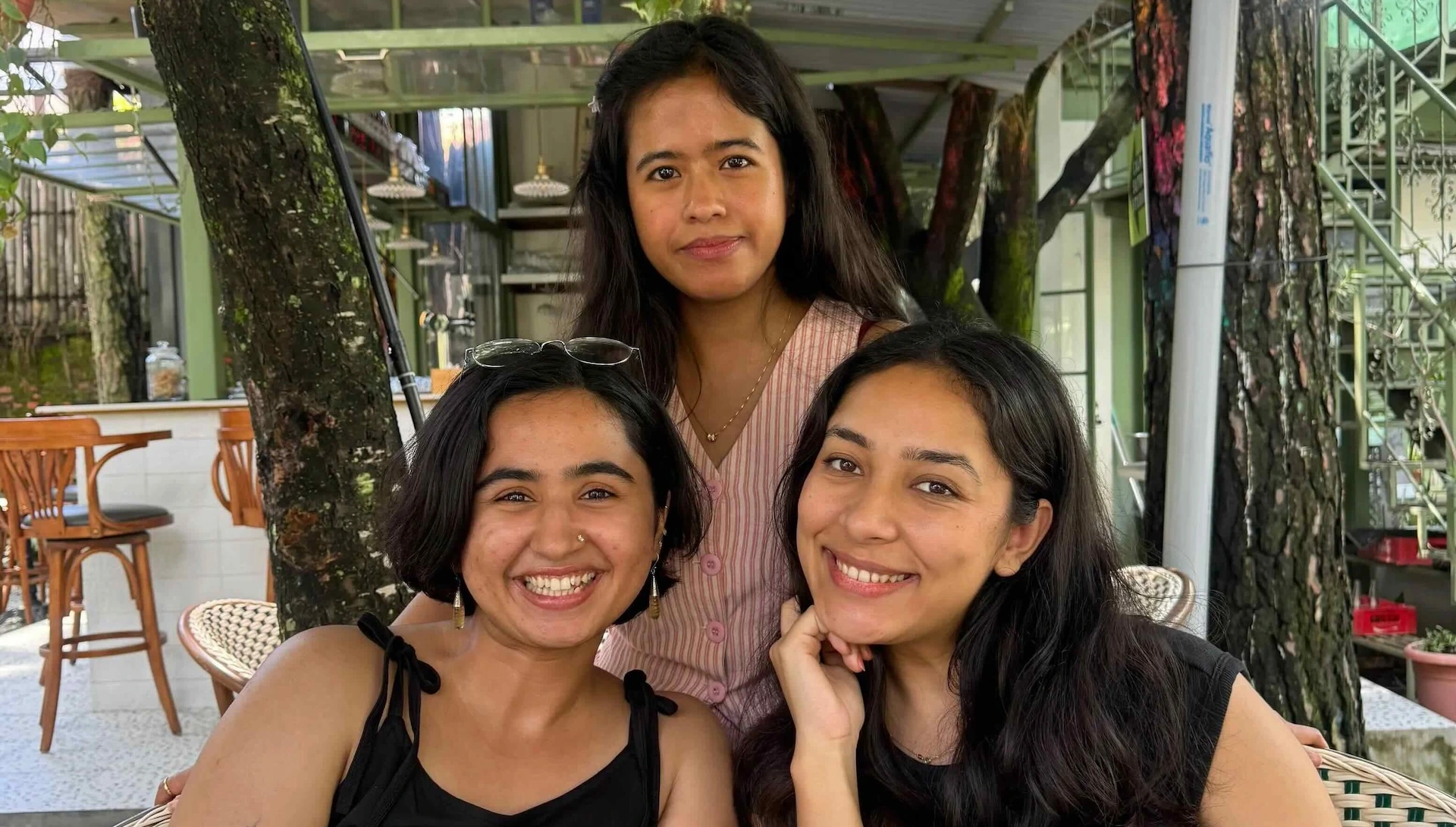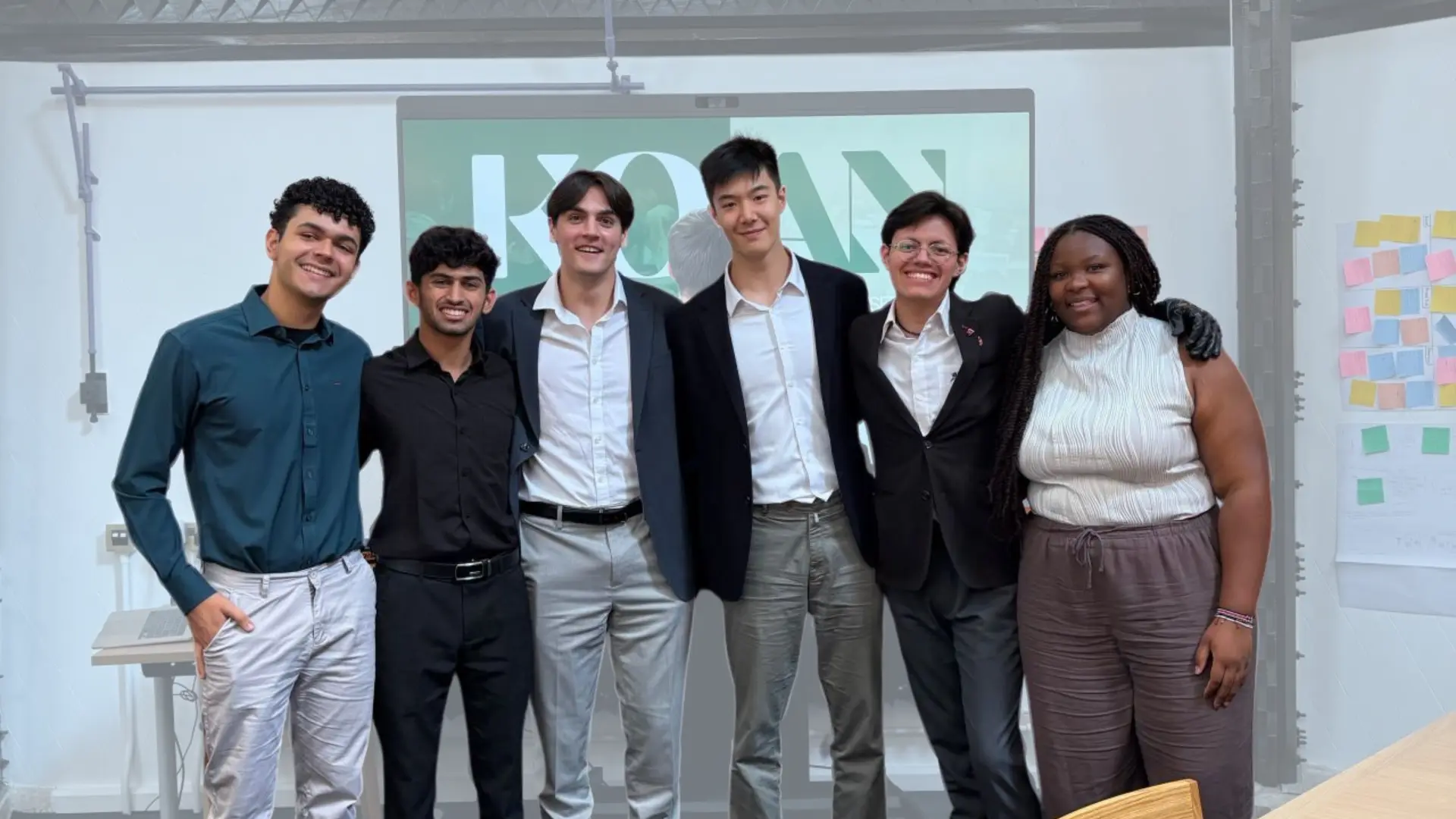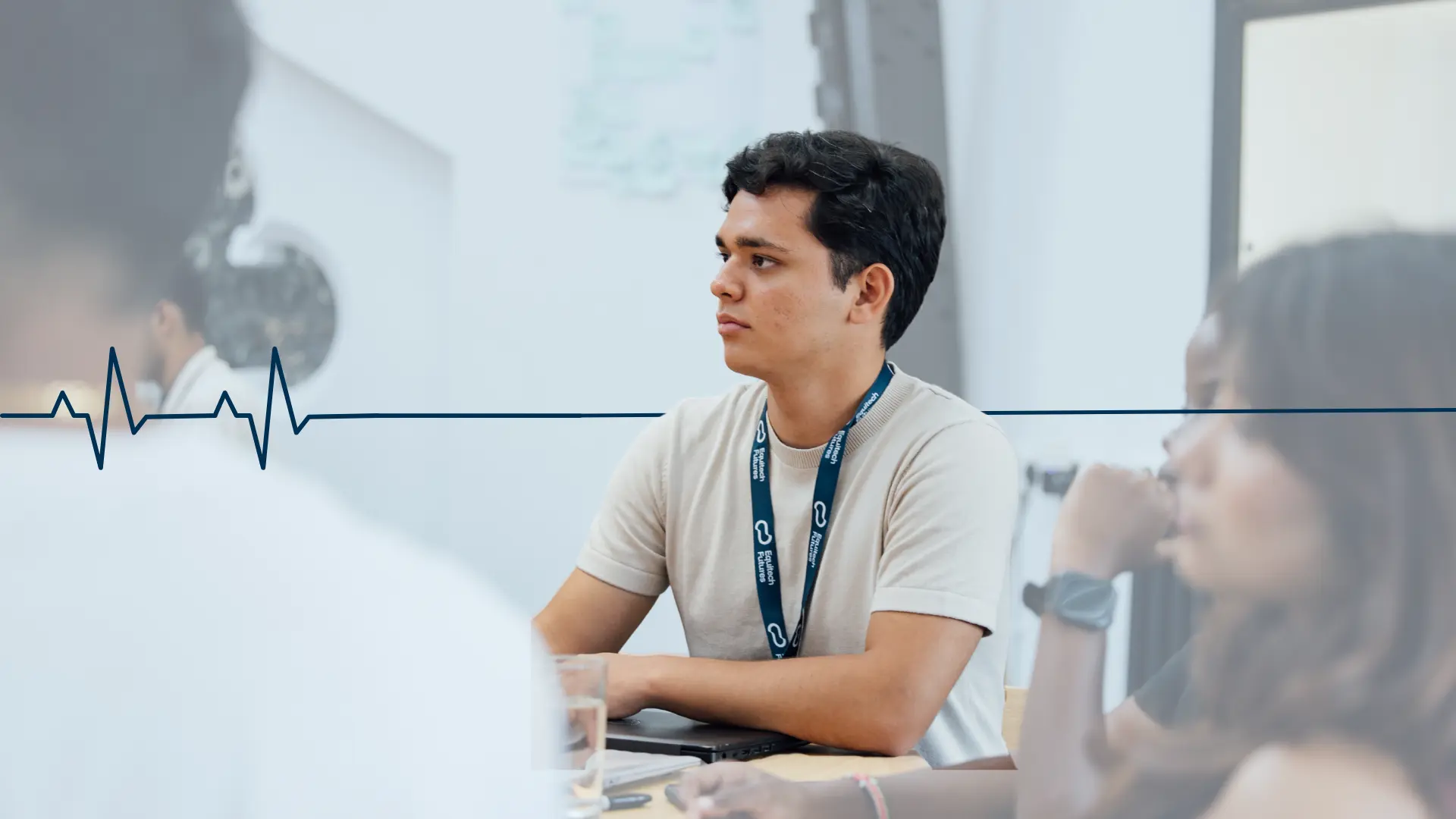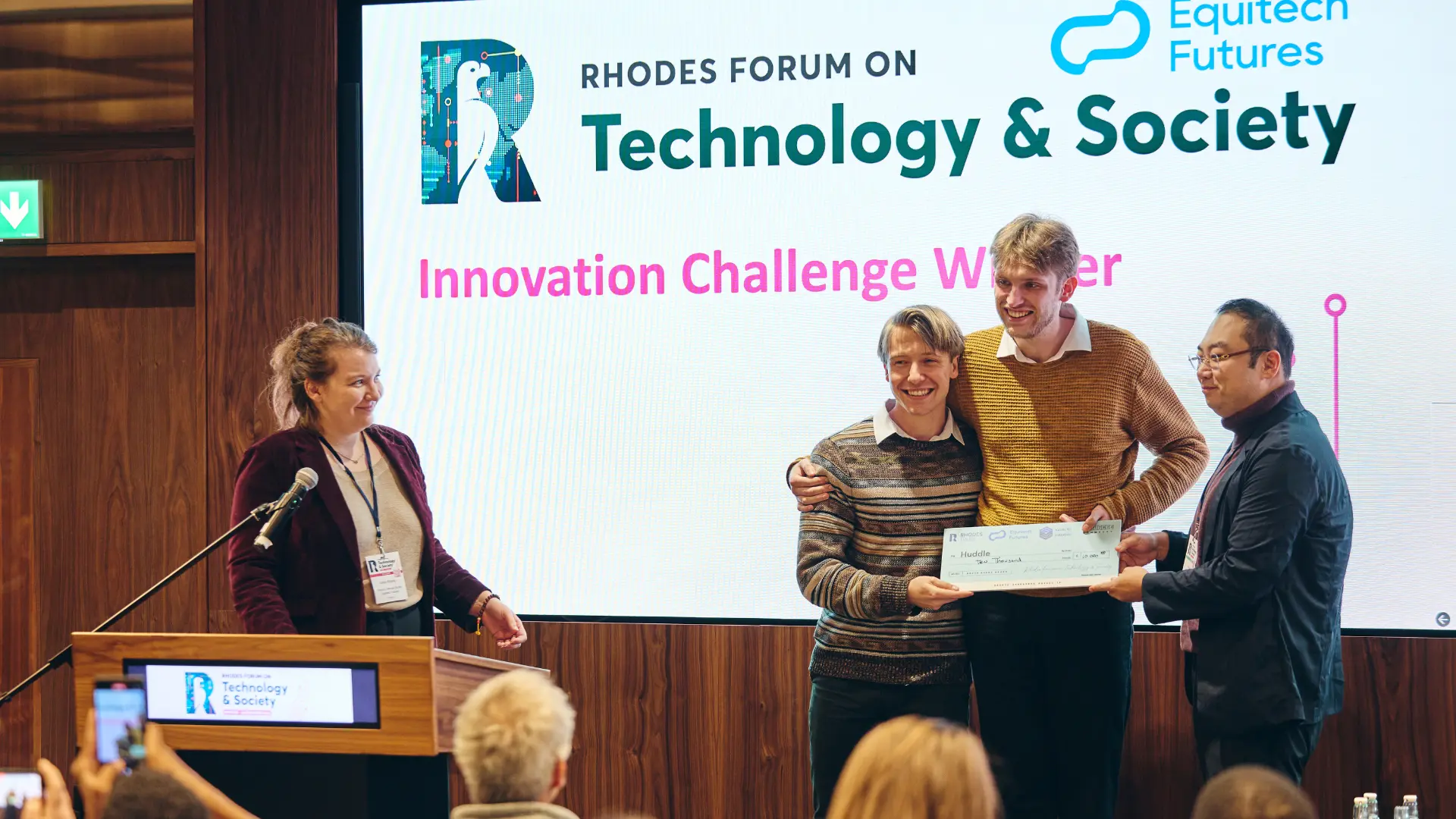
Newsroom
Learning in the Midst of a Coup: Equitech Scholar Hager Adil reflects on her journey in AI during political turmoil
Sep 18, 2023
5 min read
When her university closed due to a military coup in late 2021, Hager Adil was actively seeking out for opportunities and volunteering experiences, when she encountered the Equitech Scholars program application. "I grew up in a country with a complicated political scenario, that most often interferes with daily life and the activity of schools and universities; leading them to shut down for considerably long periods," says Hager. However, this challenging environment hasn't hindered Hager from continuing to progress. "I attempted to make use of my time as much as I could. I have always taken personal responsibility to improve myself and my career," she states. Hager Adil, an alumna of the Equitech Scholars Program from 2022, is a Sudanese woman who has remained determined to move forward despite the circumstances.
“The concept of this program was very intriguing to me—using AI and data science to solve societal challenges,” says Hager. During her application process, she expressed her interest in solving various problems through the tools of AI and data science. One of the areas that captured her attention was agriculture, as food scarcity is a significant challenge in Sudan. She explained that it’s a problem of unutilized use of resources, technology, and lack of knowledge, and she aspires to contribute to finding solutions in low resource settings. She was also curious about developing a critical perspective and ethical values on the use of AI, driven by her desire to better understand the ethical considerations surrounding AI.
A student at the University of Khartoum, Hager managed to balance her studies in Engineering with her participation in the Equitech Scholars. Reflecting on her experience, she emphasizes the invaluable lessons learned from her fellow cohort members. She points out, "The most significant lesson I gained was from the cohort itself, comprising highly intellectual individuals. Each person offered fresh viewpoints that I hadn't encountered or been aware of previously." Being part of a global cohort exposed her to a diverse range of perspectives and problem-solving approaches. Hager highlights the importance of not restricting one's thinking to a singular perspective and emphasizes the value of thoroughly examining issues from multiple angles before reaching conclusions. “One of my main takeaways from the Equitech program was learning the extent of impact that technology can have on people and society as a whole. I learned to identify failure points and cultivated the mindset to build AI as a system and not merely an algorithm. This thought process has directly influenced my career decisions, and I always focus on work that has a social impact angle to it,” Hager says.
In August 2022, Hager attended a conference called Deep Learning Indaba, the biggest AI conference in Africa. She gained immensely from the various workshops and seminars conducted during this conference. A particular topic which caught her interest was the lack of diversity in the field of Natural Language Processing (NLP), wherein underrepresented languages like Arabic, her native language, and many African languages lacked adequate representation. Hager proceeded to focus her efforts in her graduation project with attempts to aid in this gap. She contributed to developing the DistilBERT language model particularly for the Arabic Language with the aim that this project serves as a foundational asset for advancing Arabic NLP research and applications across various domains and leads to greater diversity and inclusivity. She co-authored a paper titled, ‘Knowledge Distillation of BERT Language Model on the Arabic Language’, which was published as a Tiny Paper for International Conference on Learning Representations (ICLR), 2023. She will soon graduate with a bachelor's degree as she recently submitted her thesis.
In addition to coursework, Hager has also participated in conferences and seminars. As a technical volunteer, Hager has contributed to virtual conferences with the International Conference on Learning Representations (ICLR), and the International Conference on Machine Learning (ICML). Similarly, she has volunteered for several other local and global initiatives utilizing her expertise and leveraging her skills. Hager has also actively contributed to the Institute of Electrical and Electronics Engineers (IEEE) student branch at her university. As a media coordinator for the IEEE, she played a pivotal role in conducting informative sessions. Her engagement extended further, where she curated educational posts encompassing diverse technologies such as Computer Science, AI and Web Development. Her focus was directed at guiding junior students in exploring the range of possible options, providing them with a standard reference, and utilizing online platforms to deliver educational content that could help shape their career paths. Notably, she contributed to arranging a full program dedicated to problem-solving challenges and successfully proceeded to co-organize the first mock-up competition to the global IEEEXtreme Competition in Sudan. Her efforts played a significant role in preparing students for the competitions and excel in their pursuits.
Hager has recently become aware of the significance of AI governance, safety, and trustworthiness. In the future, she wants to focus on policy work, aiming to guide institutions towards beneficial AI while incorporating previously marginalized communities and perspectives. Hager recognizes that the process matters as much as the outcome, emphasizing the importance of ethical considerations, inclusivity, and transparency. With a keen understanding of AI's potential risks and rewards, she is committed to shaping AI development responsibly and advocating for governance that aligns with societal values. Through her work, Hager aims to contribute to a future where AI benefits the majority regardless of the social or economical settings while avoiding pitfalls. With a twinkle in her eye, she shares her philosophy, “It is critical to do work in the right way, and not just do it for the sake of doing it”.
Hager’s advice for future scholars is, “Don't confine yourself from the outset. Continuously explore, engage with experienced individuals, learn from them and pursue your interests. The scope of possibilities is vast across numerous fields and intersections; don't set limits prematurely. Cultivate your network and connections—every day brings new lessons in shaping your career. Consider focusing on work that delivers impact and find the challenges that most resonate with you. Approach these challenges with others, each contributing unique skills and perspectives. Working collectively as a group nearly always creates more effective solutions.”
More articles
.webp)
Newsroom
No Innovator Left Behind: How Equitech Futures uses philanthropic capital to maximize impact

Newsroom





















.webp)




.webp)


.webp)








.webp)















.webp)

.webp)


.webp)


.webp)






.webp)



